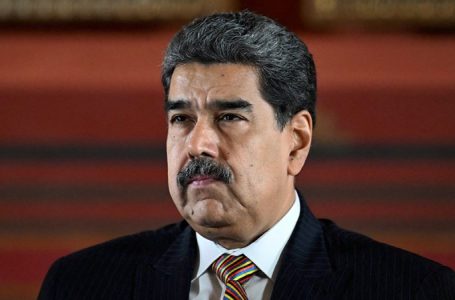Seizing the momentum


I have written in this space many times before that survey rankings change over the campaign period. That is because the rankings reflect the sentiments of the voters at the time the survey was conducted. A lot of things can happen between the time a survey was conducted and Election Day that can change the sentiments of the voters, and consequently the rankings of the candidates in the surveys.
For one, campaign strategists of the different candidates will make things happen, either to boost their candidate’s political stock or to erode his opponents’ standing. There can also be developments outside the influence of the candidates that can have a significant impact on their campaign.
This was shown in the last Pulse Asia survey on preference for presidential candidates. Bongbong Marcos still leads in the March 17-21 survey, but his numbers went down by 4%, from 60% in the Feb. 18-23 survey to 56%. Leni Robredo’s numbers rose by 9%, from 15% in February to 24%.
Marcos remains the frontrunner in all geographical areas — 64% in Metro Manila, 54% in the rest of Luzon, 48% in the Visayas, and 62% in Mindanao. However, he lost points in all these areas — 2% in Metro Manila, 4% in the rest of Luzon, 5% in the Visayas, and 6% in Mindanao.
Robredo registered 17% in Metro Manila, 30% in the rest of Luzon, 28% in the Visayas, and 14% in Mindanao. However, except in Metro Manila where she lost 1%, she scored big in all the regional areas. She gained 14% in the rest of Luzon, and 9% each in the Visayas and in Mindanao.
Marcos still leads across social classes, but his numbers in these classifications also went down — 4% for people belonging to Class C, 5% for Class D, and 6% for Class E. Robredo gained 13% from Class C, 10% from Class D, and 9% from Class E.
Barry Gutierrez, Robredo’s spokesperson, said. “The survey numbers are starting to reflect what we have been seeing on the ground all along: the massive crowds, the fierce passion, the untiring commitment of Filipinos from all walks of life, coming together to rally behind Leni Robredo’s bid for the presidency.”
An event that could have influenced the ratings of Marcos and Robredo in the Pulse Asia survey was the pastoral letter the Catholic Bishops Conference of the Philippines sent to their flock on Feb. 25, just days after Pulse Asia completed its February survey. The letter belied the narrative that Ferdinand Marcos’s presidency was the Golden Age of a booming economy, golden infrastructure, discipline and order.
The letter warned the electorate of the radical distortions in the history of Martial Law and the EDSA People Power Revolution. It said, “An election or any process that is not based on truth is but a deception and cannot be trusted. Thus, and also in view of the coming elections, we call on you, Brothers and Sisters — especially the Youth, to examine carefully what is happening in our quest for a true and just society.”
Robredo’s gains in voter preference as indicated in the Pulse Asia survey may be significant but they are not enough to overcome the lead of Marcos. If the Kakampinks do not want an administration elected based on lies as the Catholic Bishops warn, then they should seize the momentum created by the pastoral letter to turn the tide in favor of Robredo.
Now that the Robredo campaign strategists have intensified the house-to-house campaign, the Kakampinks should tell the true story of the Martial Law years in every house they visit. They should tell the household that Bongbong cannot deliver on his promises as he has been a pampered and privileged individual all his life, and that he is lazy which is why he has no accomplishments to speak of.
They can use the slogan “Babangon muli” to project the specter of Ferdinand Marcos, the “Greatest Robber of Government” as the Guinness Book of Records describes him, coming back to life in the person of Bongbong. The message “Babangon muli” can be made to mean bringing back the horrible Conjugal Dictatorship, which stands for massive corruption, boundless extravagance, and unrestrained oppression.
To counter the narrative of a Golden Age propagated by an army of trolls over the last three years, the Kakampinks should narrate in every house they visit the sordid stories of warrantless arrests and of torture of political enemies and critics, the Jabidah Massacre and other mass murders, the soaring prices of basic commodities, the long queues for rice rations, and frequent widescale blackouts during Martial Law.
Those are the stories the Kakampinks should tell the folks in the countryside who have no access to social media, much less to mainstream media now that the far-flung network of ABS-CBN has been denied use of the air lanes. They should leave flyers that the voters in the house can read.
They need not produce a comic book like the one that foiled Bongbong’s first bid for the Senate in 1995. Simple flyers that tell the truth about Bongbong Marcos, like the posts that saturate social media now, will do.
Oscar P. Lagman, Jr. is a retired corporate executive, business consultant, and management professor. He has been a politicized citizen since his college days in the late 1950s.











